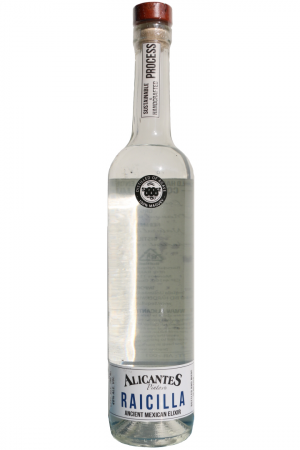
Alicantes
Alicantes – small and 100% authentic, organic, agave spirits brand
Alicantes is a small company with very few products, but all of the products have been handmade, are organic and of the highest quality. Alicantes have their distillery in Amatitán in the beautiful Jalisco. What is interesting here, is the inclusion of the word “artesanal” which indicates that Alicantes tries to return to older production methods for their agave spirits. Tequila was once mezcal and it can be said, that tequilas typical flavour profile has come out of a optimimzation of the production process. The abandonment of earth ovens in favor of brick ovens, was largely responsible for tequila losing its smoky flavor.
Brand background
The brand is named after a mythical snake, the “Alicante”, which was said to drink the milk of mammals and stock. The Alicante was mainly a benevolent snake, and it is often thought of as another name for the “Corn Snake”, which is a small constrictor snake living in corn fields. The Corn Snake is thought to be beneficial in the fields, because it eats rats.
Serpents (the nahuatl name is “Coatl”) have a lot of room in mesoamerican mythology. Sometimes as “the feathered serpent, Quetzalcoatl” and sometimes as vehicles for the sun and the stars.
Multiple agave products
Alicantes makes both tequila and raicilla. Raicilla is an old spirit, but still a very young one in terms of official regulation.
Denomination of Origin for Raicilla
Raicilla was granted Denomination of Origen status within Mexico in 2019. The DO is comprised of the municipalities of Atengo, Chiquilistlán, Juchitlán, Tecolotlán, Tenamaxtlán, Puerto Vallarta, Cabo Corrientes, Tomatlán, Atenguillo, Ayutla, Cuautla, Guachinango, Mascota, Mixtlán, San Sebastián del Oeste, and Talpa de Allende in Jalisco, as well as Bahía de Banderas in Nayarit state.
Truly wild agave is quite scarce now in the raicilla regions. Semi-wild agaves are planted (from seed or hijuelo) and left to grow until they are harvested. The coastal region features several sub-varietals of A. angustifolia and A. rhodacantha. In the sierra, A. maximiliana and A. inaequidens predominate. Maturation periods vary, averaging around eight years. The raicilla Norm specifies that mature agave must be used. These agaves are generally harvested with machetes.
Showing the single result

